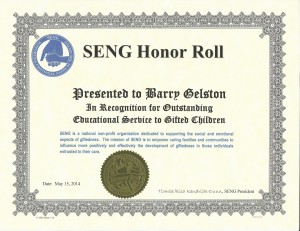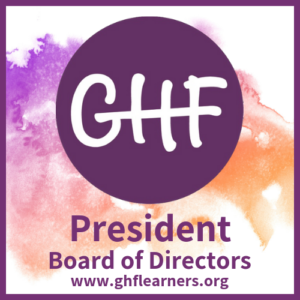
My focus here is about the challenges and uniqueness of the gifted learners identity.
As I have led this conversation several times with teachers and parents of gifted kids both at conferences and online, we have covered the idea of a learning identity, we tackle the myths associated with the definition of giftedness, and discuss what a healthy learning identity might be.
I start from the position that we all carry identities which define how we view ourselves. Our identities are developed through the influences of birth, family environment, and the world around us. Our interaction with these factors sends us a clear message as to who we are. We get reinforcement through many forms that creates an identity that we begin to live by.
In my teaching, I come across gifted learners who are struggling with expectations for themselves, I believe, based on the identity that they develop as a gifted person. On a very basic level, imagine being a child and getting raves from the world around you for your early ability to read and write and/or have strong number sense and problem solving intuition.
This consideration of gifted identity combines neatly with the work of Carol Dweck and the problems of a fixed mindset. My contention is that the gifted child develops a fixed mindset for learning which is a high tightrope act that leaves little room for failure. Furthermore, this mindset can lead to staying fixed in a comfort zone which seems broad early on, yet becomes narrower as the years progress. Gifted intensities can make it harder to leave the comfort zone as the stress of failure is powerful.
With these thoughts in mind, my approach as a math educator is to introduce and model that a mathematician makes mistakes, we can laugh about the small little errors that we naturally make as our heads move faster than our hands. We discuss using our whole brain which includes the rest of the nervous system that runs through our fingers when we do math. We call it “brain caching,” by putting our thoughts on paper to allow our brains to do the high value work of analysis while our hands do the rudimentary work of creating visual representations. We treat problem solving as a joyful process.
Gifted kids can and do come with special needs which makes the job more interesting for parents, educators, and parent-educators. Our challenge as a community is to create a positive approach (growth mindset) for gifted learning. I have worked with some pretty wonderful parents who embrace the gifted diagnosis as a tool to understand that even though their children have some great abilities, they also take the time to make the “weaknesses” a matter-of-fact occurrence that the young learner works around. Parents find assistive technologies, workarounds, online support communities, and community professionals to help them extend their children’s learning comfort zones.
We are only just scratching the surface, but I want to close that a good place to start is to let yourself get something wrong as well as the learner. We don’t live in Apollo 13 situations everyday where failure is not an option.
Geniuses make mistakes, they learn to tinker and keep improving things. Artists paint over their paintings all of the time. Software people debug, early and often. Professional athletes practice for a living. When we extend beyond our comfort zones we are experimenting and playing with new things. Gifted people need to learn early on to embrace the fun of playing with something out of their comfort zones.
It’s okay to play with your “food-for-thought.”


